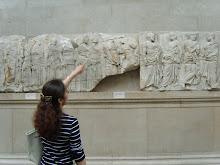Victimization or been Victimized?:
Love Scratched and Erased in Fool for Love
What is the meaning of love? The dictionary says it means “a very strong feeling of affection towards someone who you are romantically or sexually attracted to.” In this sense, the feeling between Eddie and May is a faultless love, even though they are obsessively attached to each other. They can/must not share such a desirable love, though, because they are siblings. However deep the love is, we see a ridiculed love of brother-sister incest, though they are just half-blooded. Convention or morality defines the love as irrational and sinful, which leads us to sense the absurdity of it, simultaneously victimizes it. I say “victimize” here, but cannot say it is right formulation.
Eddie says to Martin, “The reason you’re taking her out to the movie is because you just want to be with her” (78). Love claims to be with, and just starts at that moment. May and Eddie would “never stop being in love” (86) from the beginning, and they not only “couldn’t take a breath without thinking of each other,” but also “got sick at night” when they were apart (91). Eddie tried to love another and May did so, but it’s just like running their heads against the wall. Their love is like a curse to their father, the Old Man, who lived a double life. It might be also a revenge on the deeds of the father and their mothers. The mothers, one of whom might smell but tolerate her spouse’s adultery, the other stuck to a married man, both were finally causers and victims of family tragedy. Eddie's mother blew her brains out with his father’s gun. The father’s duplicity and selfishness begot his children’s destructive love, and the mothers’ adherent loves brought the ruin of their own as well as the children’s misery of heart. Consequently, the parents and the children victimized each other.
The scenes are performed in a cheap motel on the edge of a desert―the Mojave Desert―. The desert, which implies infertile dryness, initially determines the love’s fatality. The love results in the void itself, and seems like the imaginary picture at which the Old Man keeps staring. In the early part of the play, May tells Eddie “You’re either gonna erase me or have me erased” (48). Eddie is like a disease to May (59) to be erased, and May to Eddie. They know their perceptible love is destined to vanish into nothingness. It is away from the sight of the audience as well. Paradoxically speaking, the nothingness in this case can/might be something indescribable, but it should be formless anyway, as if it’s in a dream. This kind of paradoxical sophistication would serve as appeasement between the characters and the audience, who have many things to say but hard to articulate them. One cannot but let it be.
There is no absolute victim in the play. By victimizing one another, they all become injurers not victims, who accept being inflicted. Loves of the play deserve to be erased within the context of the text, because they―the children as well as the parents― separately loved in each own way, that is some addicted selfish way, scratching and devastating themselves. The love of the children―Eddie and May― lies in the heart of emotional ruins. Love has no victim but itself. We humans victimize feelings in the name of love, so love is done by its name.
Brit...
(Written on 9 November, Handed out on 10 November)


No comments:
Post a Comment